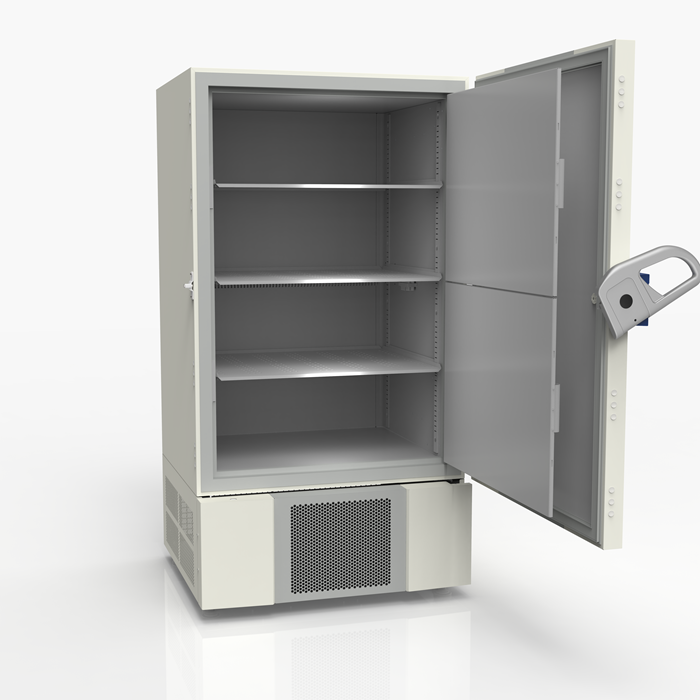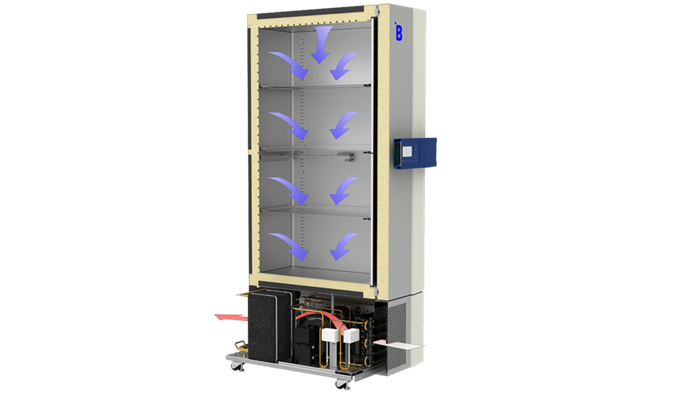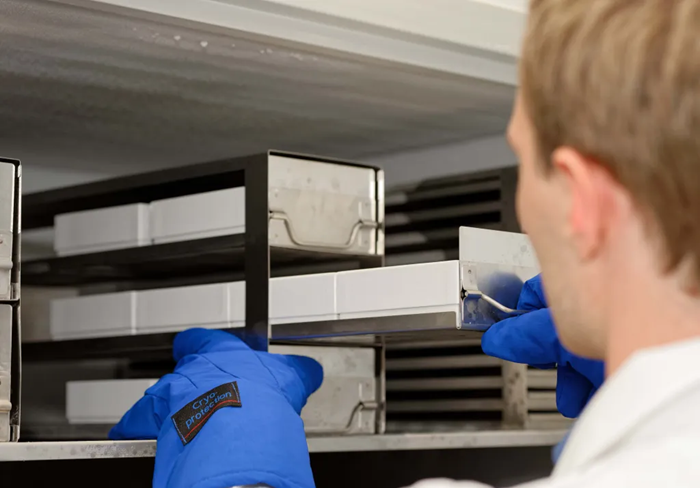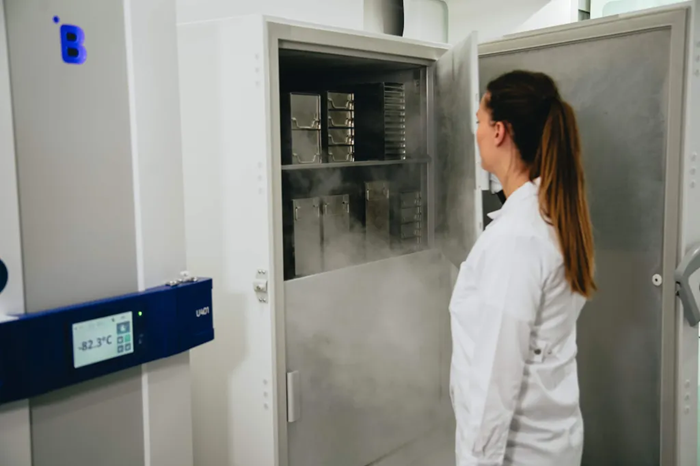The Ultra-Low Freezer U901 has a storage capacity of 900 L, or 31.78 cu ft.
- Set Temperature: –82 °C
- Climate class (ambient temperature range): +10 °C to -43 °C
- Alarm limits: –87 °C | –77 °C
- External dimensions (H × W × D): 1988 × 1139 × 1039 mm | 78.27 × 44.84 × 40.91 in
- Refrigerant Type: Natural R290 / R170

Image Credit: B Medical Systems
Download the Brochure for More Information
Description
Reliability
- Set point that can be changed from –86 °C to –20 °C
- Consistent and steady distribution of temperatures
- Quick temperature recovery following door opening
- Longer holdover period in the event of a power outage and optional CO2 backup
- An audiovisual alert system that can be remotely transmitted via email or SMS
- Coalescing oil separators lower the chance of compressor failure and oil obstruction issues
- °B Connected universal software for long-term archiving, reporting, and remote monitoring (per FDA 21 CFR Part 11)

Image Credit: B Medical Systems
Efficiency
- High-efficiency natural refrigerants that comply with EU F-Gas and US SNAP requirements
- Improved frame, sealed gaskets, and insulated inner doors reduce frost accumulation and cold air leakage.
- Superior stainless steel cabinets with antibacterial coatings and thin polyurethane foam injections offer excellent thermal insulation and storage space.

Image Credit: B Medical Systems
Convenience
- 7” touchscreen with temperature display is easily accessible in the bar
- Password protected/NFC card-based door locking mechanism
- Data can be easily exported using the USB port and SD card slot
- Antibacterial coating for simple hygiene management
- Modular interior equipment
- Convenient access to all levels
- High-quality stainless steel and other materials for a longer lifespan

Image Credit: B Medical Systems
Download the Brochure for More Information
Technical specifications
Source: B Medical Systems
| . |
. |
| Gross volume |
949 L | 33.51 cu ft |
| Storage Capacity |
900 L | 31.78 cu ft |
| Cryoboxes capacity |
690 |
| 2ml Vials Storage Capacity |
69000 |
| Set Temperature |
-82 °C |
| Temperature range |
-86 °C to -20 °C |
| Alarm limits |
– 87 °C | –77 °C |
Climate class
(ambient temperature range) |
+10 °C to +43 °C |
| Certifications |
cCSAus | EU MDR Class IIa | ISO 14644-1 | Class 5 | US FDA Class II |
| Cooling technology |
Static cooling |
| External dimensions (H × W × D) |
1988 × 1139 × 1039 mm | 78.27 × 44.84 × 40.91 in |
| Internal dimensions (H × W × D) |
1375 × 887 × 738 mm | 54.13 × 34.92 × 29.05 in |
| Net weight |
320 kg | 705.48 lb |
| Frequency |
50 Hz |
| Supply voltage |
230 V |
| Energy consumption |
12.4 kWh/24 h |
| Noise level |
51 dB |
| Refrigerant Type |
Natural R290 / R170 |
| Heat emission |
444 Kcal/h |
| Materials |
Stainless steel |
| Display |
7" touchscreen |
| Remote monitoring |
°B Connected software | RTMD included |
| Hold over time |
2.3 h (–80 °C to –60 °C) |
| Defrosting technique |
Manual |
| Access control |
Password or badge |
| Data export |
SD card | USB port |
| Product Type |
Ultra-Low Freezer |